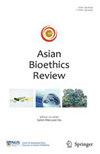Ethical Relativism and Circumstances of Social and Cultural Contingencies on Informed Consent in the Conduct of Research: Clinical Trials in Nigeria
Abstract
There have been debates across the globe for a social and culturally sensitive ethics to meditate a catalyst of template for informed consent (IC) in the conduct of social researches and clinical trial. The study adopted ethical relativism theory to explore social and cultural contingencies on IC with descriptive research design and snowball sampling techniques with a pool of 23 participants randomly and purposively selected amongst the stakeholders including researchers. Seven lecturers and 5 medical practitioners from selected universities, 5 clergy members of different genders and denominations with 2 Imams, 1 chief and 2 traditional health practitioners completing the pool. The data were compiled separately with pseudonym to maintain the anonymity of the participants and content analysed thematically to probe awareness, understanding, patriarchy and religious dimensions on IC. The paper argued that ethics and law regulations must be strengthened to leverage on different individual values, norms and social indices. The paper concluded and suggested that researchers can avoid and resolve ethical dilemmas and maintain research regularity when ethical obligations are well understood and strictly adhered to, and to develop the Informed Consent Evaluation Feedback Tool (ICEFbT) with oversight function from Institution Review Board (IRB) in the universities and research institutes before the commencement of research and/or medical procedures.

 求助内容:
求助内容: 应助结果提醒方式:
应助结果提醒方式:


